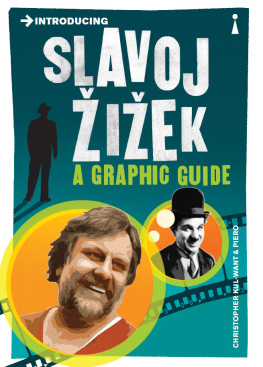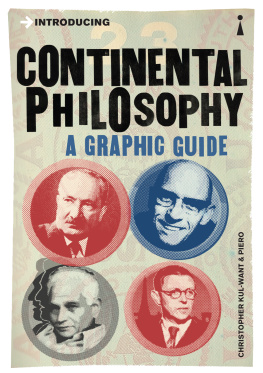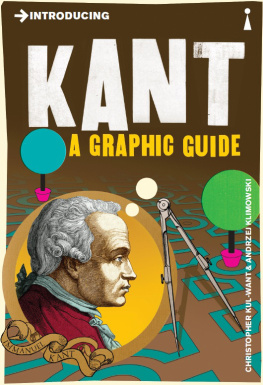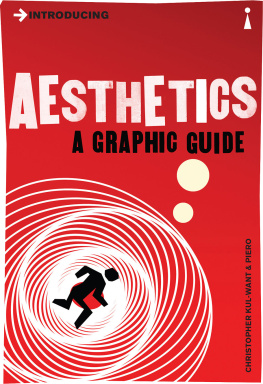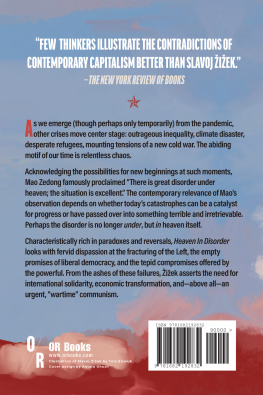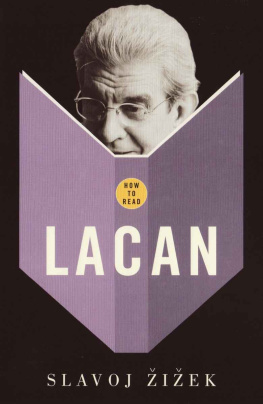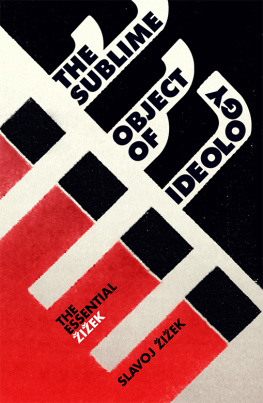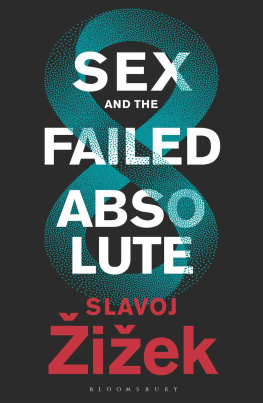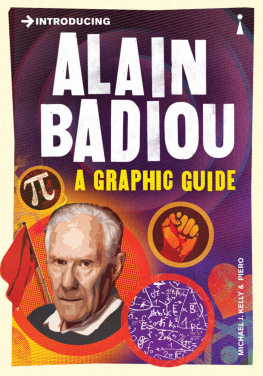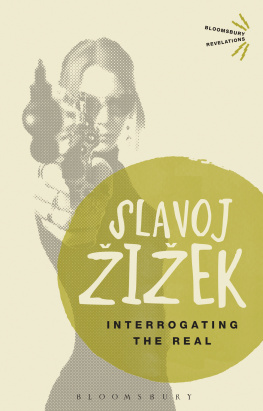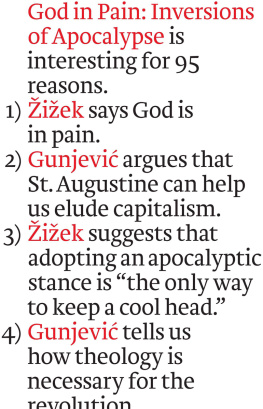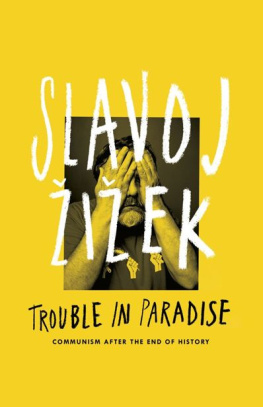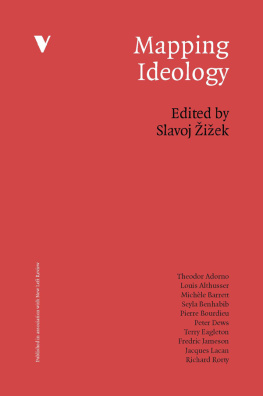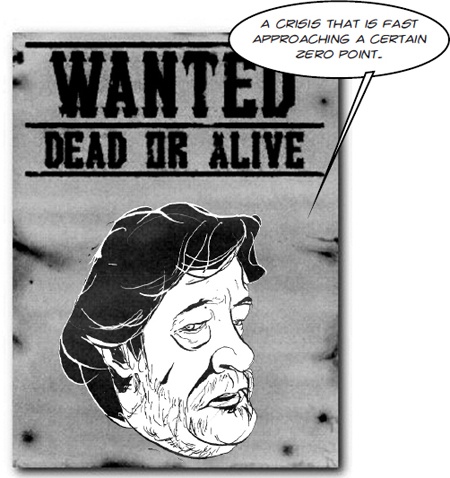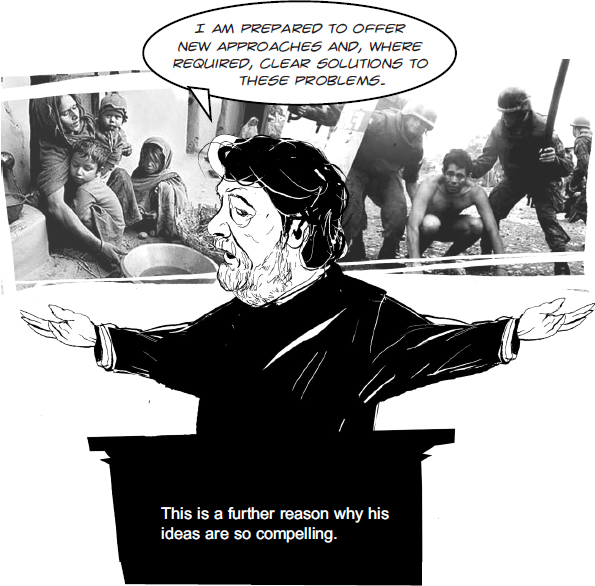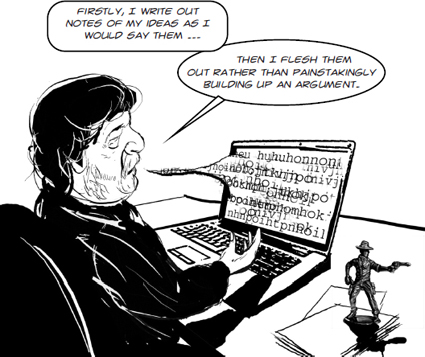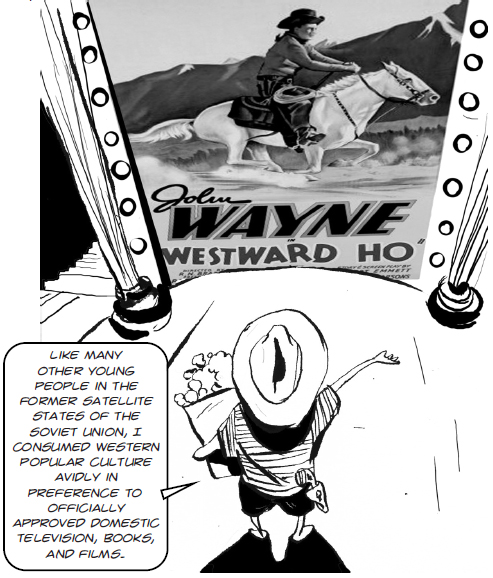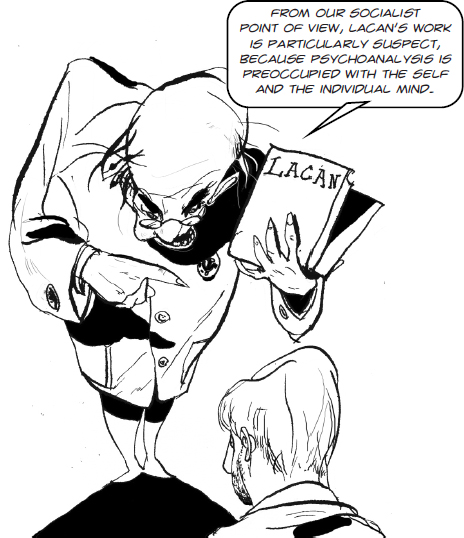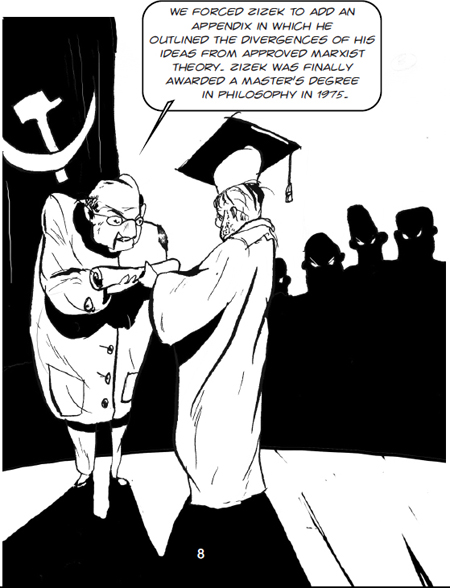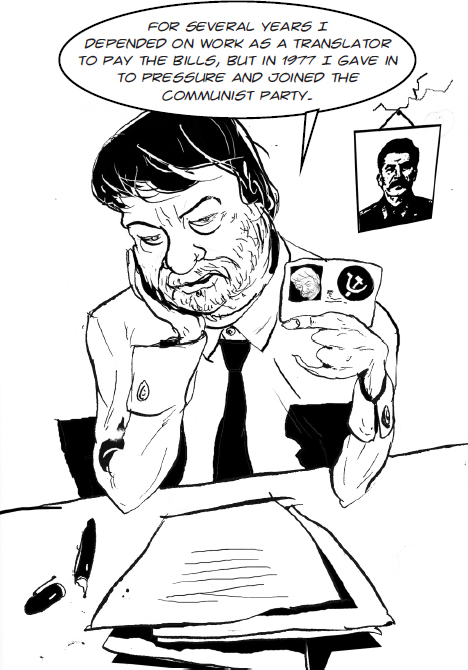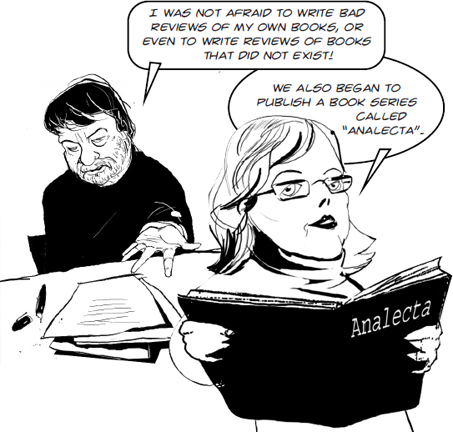Contents
Published by Icon Books Ltd., Omnibus Business Centre, 3941 North Road, London N7 9DP
email:
www.introducingbooks.com
ISBN: 978-184831-776-5
Text and illustrations copyright 2012 Icon Books Ltd
The author and artist have asserted their moral rights.
Edited by Duncan Heath
No part of this book may be reproduced in any form, or by any means, without prior permission in writing from the publisher.
The most dangerous philosopher
Dubbed by the American neo-conservative magazine New Republic as the most dangerous philosopher in the west and by the British Observer newspaper as the superstar messiah of the new left, Slavoj iek is a radical intellectual and an outspoken public figure.
iek has gained his reputation as a polemicist. As the title to one of his recent books Living in the End Times (2010) indicates, his philosophical concern is with the widespread sense of impending world catastrophe and its underlying ideological causes. His work addresses the present political, economic and environmental global crisis.
A CRISIS THAT IS FAST APPROACHING A CERTAIN ZERO POINT.
The subject of several television documentaries, iek maintains a demanding schedule of sell-out public appearances and lectures across both Europe and the US that receive hundreds of thousands of YouTube views. With his work now translated into over twenty languages, no other contemporary philosopher can touch him for sheer popularity even though his ideas are often complex and demanding.
What are the reasons for this popularity? Many people are eager to listen to a philosopher, such as iek, who has thought deeply about global problems of poverty, ecology and political repression.
I AM PREPARED TO OFFER NEW APPROACHES AND, WHERE REQUIRED, CLEAR SOLUTIONS TO THESE PROBLEMS.
The oratorical approach
iek has published numerous articles in journals and on the web, and over 50 books at a rate sometimes of one book a year. Unlike many philosophers, ieks writing springs essentially from an oratorical approach to thinking and discourse, and this is part of his appeal both in hearing him talk and in reading his writing.
ieks process of writing is highly indicative of his direct approach to communicating ideas.
FIRSTLY, I WRITE OUT NOTES OF MY IDEAS AS I WOULD SAY THEM THEN I FLESH THEM OUT RATHER THAN PAINSTAKINGLY BUILDING UP AN ARGUMENT.
This method of writing has the added advantage of preserving the spontaneity of his thoughts, and it reflects his enjoyment in expounding ideas.
A native and lifelong resident of Ljubljana, Slovenia, Slavoj iek was born in 1949, when the small Alpine capital was part of Communist Yugoslavia. An only child, he grew up in the household of professional parents.
LIKE MANY OTHER YOUNG PEOPLE IN THE FORMER SATELLITE STATES OF THE SOVIET UNION, I CONSUMED WESTERN POPULAR CULTURE AVIDLY IN PREFERENCE TO OFFICIALLY APPROVED DOMESTIC TELEVISION, BOOKS, AND FILMS.
Much of his knowledge of Hollywood cinema a subject he has written about extensively was acquired during his teenage years, when he spent a lot of time at an auditorium that specialized in showing foreign films.
Psychoanalysis, the suspect science
As an undergraduate at the University of Ljubljana, iek did not support Communist orthodoxy and came into conflict with the authorities. Not sticking to approved course lists, he immersed himself in the works of Jacques Lacan, Jacques Derrida and other philosophers, mostly French, whose writings had found little favour in socialist circles.
FROM OUR SOCIALIST POINT OF VIEW, LACANS WORK IS PARTICULARLY SUSPECT, BECAUSE PSYCHOANALYSIS IS PREOCCUPIED WITH THE SELF AND THE INDIVIDUAL MIND.
ieks eventual philosophical project became about reconciling psychoanalysis with collectivist politics.
iek earned a bachelors degree in philosophy and sociology in 1971, and then pursued a masters degree, also at the University of Ljubljana, writing his masters thesis on the French philosophers whose ideas he had been studying. His research stirred up interest among the universitys philosophy faculty, but its ideologically suspect qualities were more troublesome.
WE FORCED ZIZEK TO ADD AN APPENDIX IN WHICH HE OUTLINED THE DIVERGENCES OF HIS IDEAS FROM APPROVED MARXIST THEORY. ZIZEK WAS FINALLY AWARDED A MASTERS DEGREE IN PHILOSOPHY IN 1975.
Although iek had been promised a job at the university, it was given to another candidate whose ideas were closer to the party line.
FOR SEVERAL YEARS I DEPENDED ON WORK AS A TRANSLATOR TO PAY THE BILLS, BUT IN 1977 I GAVE IN TO PRESSURE AND JOINED THE COMMUNIST PARTY.
This opened up government speech-writing jobs, as well as the chance to take a job as a researcher at the Institute of Sociology and Philosophy at the University of Ljubljana in 1979. iek retained that position for the next several decades, even after gaining international renown.
The Society for Theoretical Psychoanalysis
In the 1970s, iek became part of a significant group of Slovenian scholars working on the theories of the French psychoanalyst Jacques Lacan (190181), and together they founded the Society for Theoretical Psychoanalysis in Ljubljana. This society, among whose best-known members are Mladen Dolar (b. 1951) and ieks second wife Renata Salecl (b. 1962), established editorial control over a journal called Problem!.
I WAS NOT AFRAID TO WRITE BAD REVIEWS OF MY OWN BOOKS, OR EVEN TO WRITE REVIEWS OF BOOKS THAT DID NOT EXIST! WE ALSO BEGAN TO PUBLISH A BOOK SERIES CALLED ANALECTA.
iek himself points out that the popularity of psychoanalysis in Slovenia owed to the fact that, in contrast to the other countries in the former Yugoslavia, there was no established psychoanalytic community to hamper or mitigate their interest in the usually controversial subject.
In 1981 iek left for Paris, where he studied with Lacans son-in-law, Jacques-Alain Miller (b. 1944). Miller conducted open discussions about Lacan in Paris but he also ran a more exclusive 30-student seminar at the cole de la Cause Freudienne in which he studied in depth the works of Lacan. Both iek and Dolar were invited to join this seminar, and it is there that iek developed his understanding of the later works of Lacan that still informs his thinking today. Miller also procured a teaching fellowship for iek and became his psychoanalyst.
Next page
